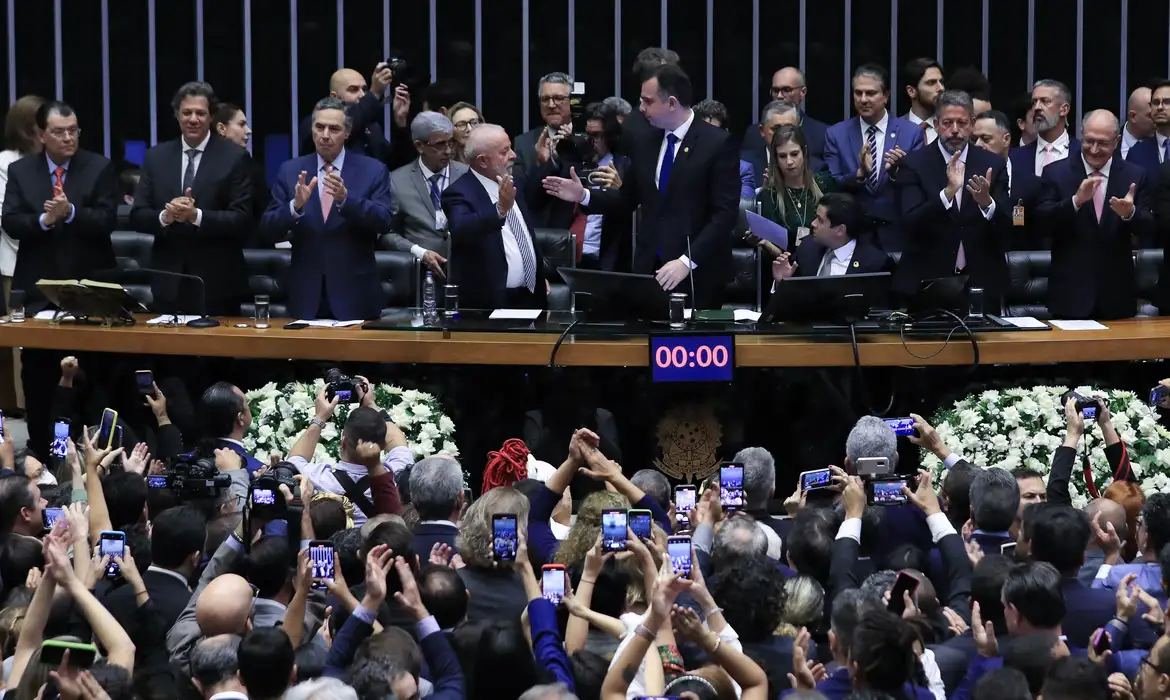
In a solemn session to promulgate the tax reform, the president of the National Congress, senator Rodrigo Pacheco (PSD-MG), highlighted this Wednesday (20) that the proposal was approved, because Brazil could not continue to live with the delay. The constitutional amendment was approved after more than 30 years of discussion in Parliament.
“The National Congress approved the reform because there was no longer any way to postpone it. The tax reform was imposed, because Brazil could no longer live with the delay”, said Pacheco, alongside presidents Lula, Arthur Lira (Chamber of Deputies) and Roberto Barroso (Federal Supreme Court).
According to Pacheco, parliamentarians had a consensus that the national tax system was unequal, penalized the poorest taxpayers, hindered the competitiveness of industry and other economic sectors and made it difficult to expand the presence of Brazilian products on the international market. However, uncertainty and fear prevented the approval of the matter.
Pacheco stated that these barriers were overcome by democratic dialogue, and praised the “capacity to bring together” the federal deputies and the president of the House, Arthur Lira (PP-AL). The senator also cited the support of President Lula, the Minister of Finance, Fernando Haddad, and the extraordinary secretary for Tax Reform at the Ministry of Finance, Bernard Appy, as well as the PEC rapporteurs in both Houses.
In his speech, Pacheco mentioned that the reform will promote the attraction of foreign investment, the reduction of social inequalities and the creation of jobs. “This is not just a reduction in the amount of taxes, but a qualitative change in the contributions owed by Brazilian taxpayers.”
Arthur Lira also highlighted the importance of approving the constitutional amendment. “Today, we can say with all conviction that the National Congress delivers to the country a lean, more rational, less bureaucratic, more simplified, fairer tax system. Now, whoever pays more will pay more. We approved a tax reform that will provide legal certainty,” he said.
After 30 years of discussion, the tax reform will simplify consumption taxation and bring about changes in the lives of Brazilians when purchasing products and services.
Basic food baskets, medicines, fuel, streaming internet services, the products are diverse. With a long list of exceptions and special rates, the new tax system will have varying impacts depending on the sector of the economy. At the same time, for the first time in history, there will be measures that guarantee progressiveness in the taxation of some types of assets, such as vehicles, and the transmission of inheritances.
Over the next year, Congress will have to vote on complementary laws to regulate tax reform. According to Fernando Haddad, the projects will be sent in the first weeks of 2024.
Also next year, the government may begin reforming Income Tax, with changes such as the taxation of dividends (portion of companies’ profits distributed to shareholders). In this case, however, the changes will occur through a bill, with a lower voting quorum.
The new taxation of goods and services will begin to come into force in 2026 and will only end in 2033. The transition to charging the tax at the destination (place of consumption) will begin in 2029, will take 50 years and will only be completed in 2078.
/data/photo/2023/12/11/657602c287712.jpeg)
